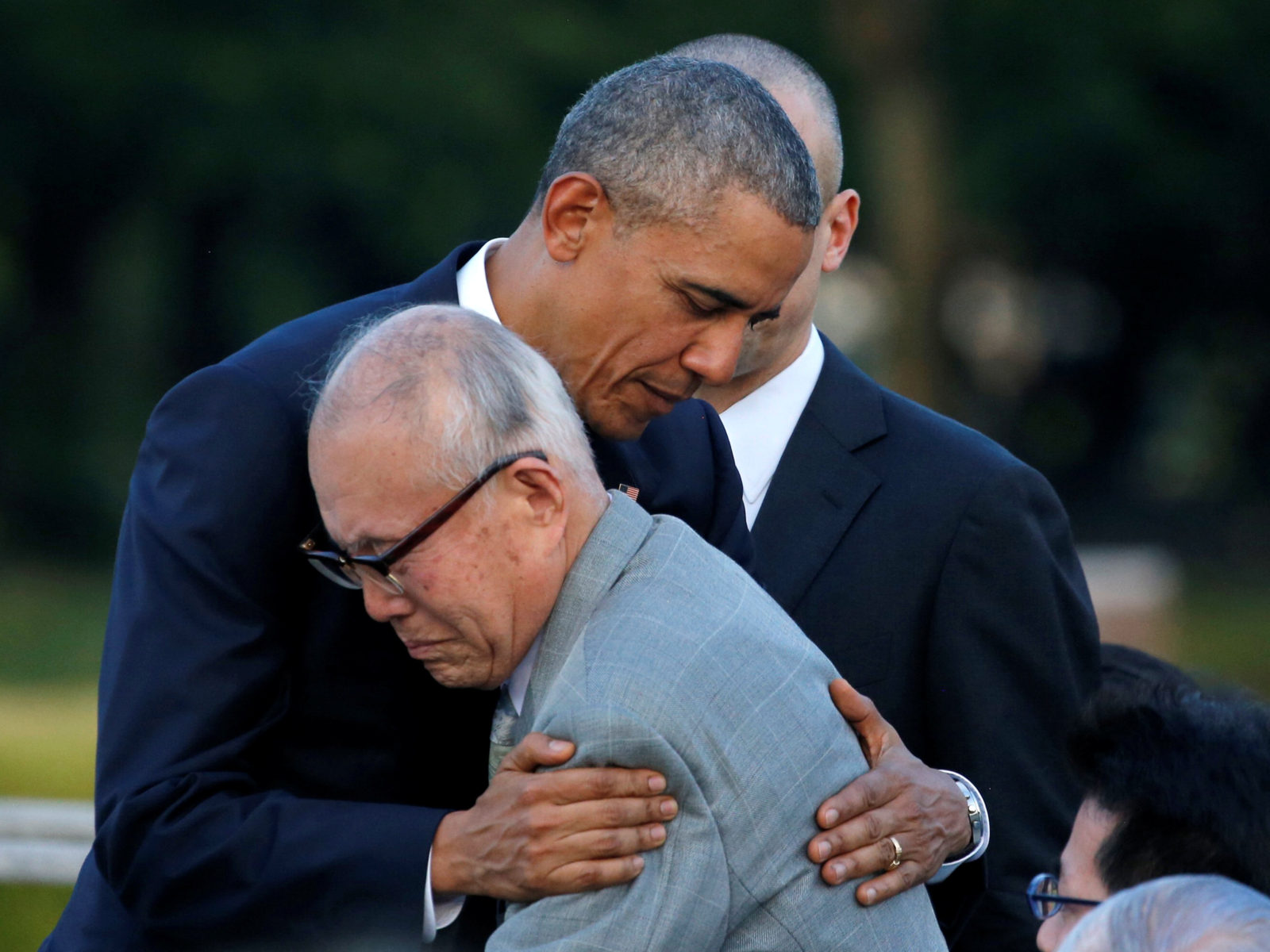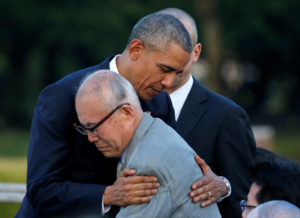“Their Souls Speak To Us”

From the Executive Director

U.S. President Barack Obama (L) hugs with atomic bomb survivor Shigeaki Mori as he visits Hiroshima Peace Memorial Park in Hiroshima, Japan May 27, 2016. REUTERS/Carlos Barria TPX IMAGES OF THE DAY
We are asked to pause on Memorial Day and remember the women and men who have died while serving in the United States armed forces.
This year, Memorial Day weekend began with an extraordinary event: for the first time, a sitting American President visited Hiroshima, Japan, where, 71 years ago, the U.S. dropped an atomic bomb. Speaking at the Peace Memorial Park, built in an open field created by the explosion, President Obama said that he had come there to mourn the dead. “Their souls speak to us. They ask us to look inward, to take stock of who we are and what we may become. …they are like us… They do not want more war. They would rather that the wonders of science be focused on improving life and not eliminating it. When the choices made by nations, when the choices made by leaders, reflect this simple wisdom, then the lesson of Hiroshima is done.”
I believe the President’s words are a fitting tribute not only to those who died in Hiroshima, but to the men and women who died while serving in our country’s armed forces. Their souls speak to us, as well. They, too, ask us to look inward, to take stock of who we are and what we may become. Those who have seen the horrors of military conflict do not want more war. They would rather that we focus on improving life and not eliminating it. It is their fervent prayer that the future we choose, as President Obama said at the conclusion of his speech, is a future in which Hiroshima and Nagasaki and every other city and village that has experienced the nightmare of war, are known not as just one more chapter in humanity’s long history of violent conflict, but known instead as “the dawn of our own moral awakening… [when we] change our mind-set about war itself. To prevent conflict through diplomacy and strive to end conflicts after they’ve begun. To see our growing interdependence as a cause for peaceful cooperation and not violent competition. To define our nations not by our capacity to destroy but by what we build…to reimagine our connection to one another as members of one human race.”
What better way to honor the memory of those who have died in war than to pray and to work for “the things that make for peace” (Luke 19:42), for the day when “nations shall beat their swords into plowshares, and their spears into pruning hooks; when nation shall not lift up sword against nation, neither shall they learn war anymore.” (Isaiah 2:4)
Rev. Jane Field
Executive Director

